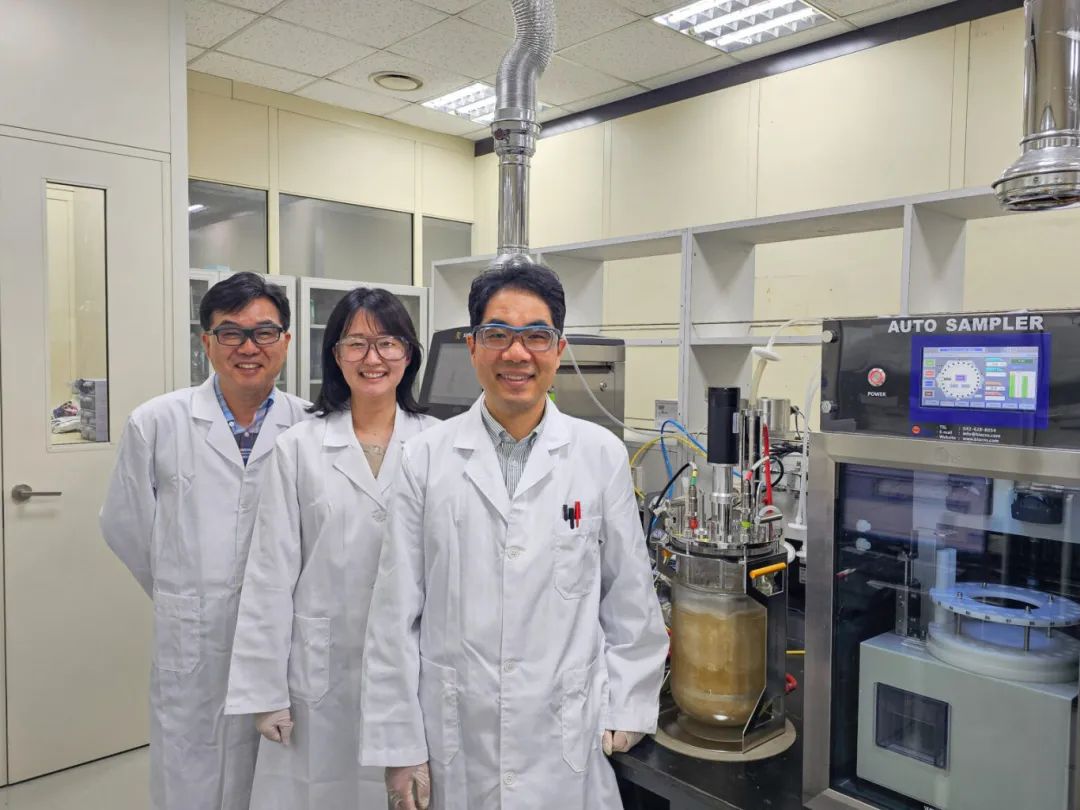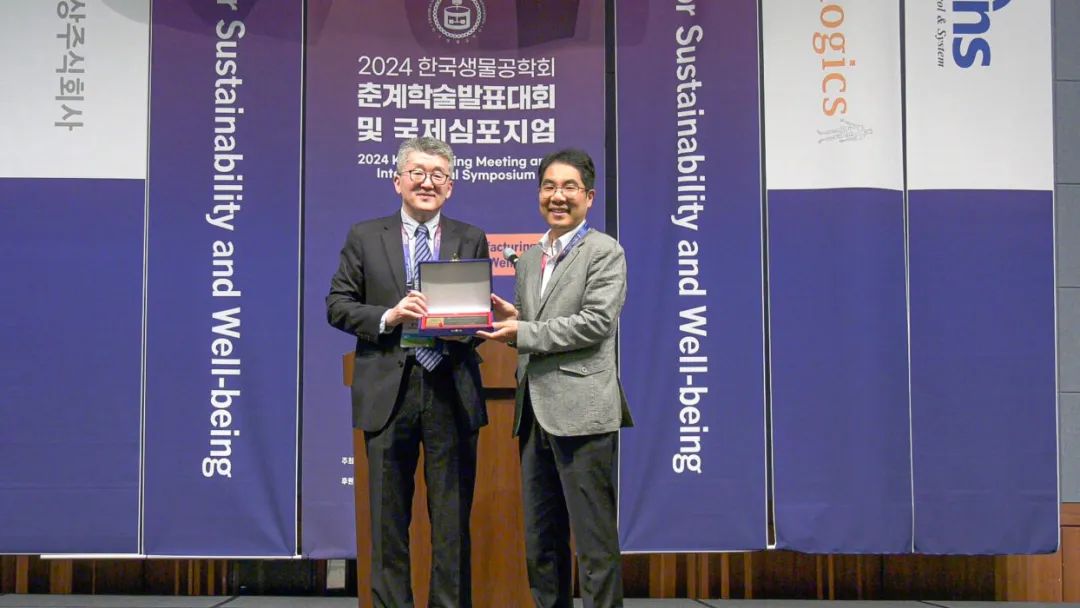Technology for PLA that Reduces Costs and Byproducts!
The research team from SK Innovation’s Institute of Environmental Science & Technology has developed a microbial fermentation method for producing lactic acid and has been awarded the Outstanding Technology Research Award by The Korean Society for Biotechnology and Bioengineering (KSBB). This technology is expected to be utilized in SK Geo Centric’s development of sustainable chemical products.

PLA decomposes naturally within 3 to 6 months in industrial composting facilities and, therefore, is expanding its range of use as a sustainable material. Replacing petrochemical substances (ethylene) plastics, which can take over 500 years to degrade, PLA is now being used for various applications such as disposable forks in coffee shops, agricultural films, fibers, medical tools, etc. According to Emergen Research, the global PLA market size, which was $1.54 billion in 2019, is projected to reach $13.89 billion by 2032, with an annual growth rate of 18.5%.
However, during microbial fermentation for lactic acid production, a neutralizing agent (calcium) is added to neutralize acids, and in the later process, chemical reactions create byproducts (calcium sulfate), which need to be removed. This has been identified as an obstacle to the widespread adoption of PLA.

SK Geo Centric plans to develop an economically feasible business strategy based on the results of this R&D achievement. As various countries expand their support measures for bio and compostable materials, PLA is now used in more areas such as agriculture, transportation, medical fields, packaging, etc. This achievement is expected to help secure cost competitiveness in the future PLA market.
The above content is from the internet.





 Tel: +86 13851443003
Tel: +86 13851443003  Whatsapp: +86 13851443003
Whatsapp: +86 13851443003  Email:
Email:  Address:Ningmao Road,Guozhuang,
Address:Ningmao Road,Guozhuang,
